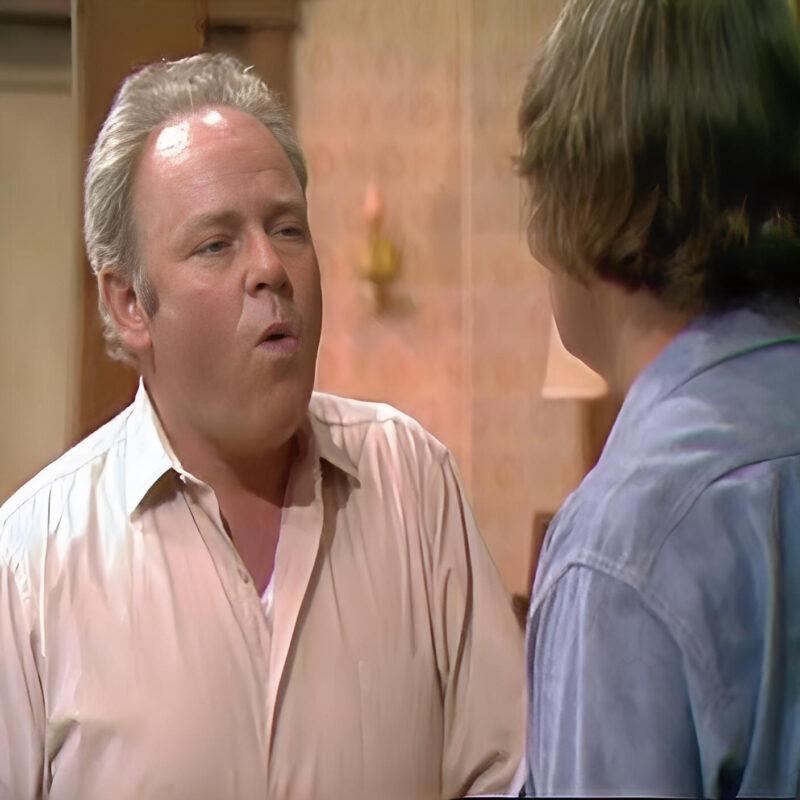
Huey P. Newton, co-founder of the Black Panther Party and a pivotal figure in the struggle for civil rights, provided a profound critique of the television show “All in the Family” and its portrayal of social issues. His analysis offers a deep dive into the show’s social impact, examining both its merits and its limitations in addressing systemic racism and other forms of oppression.
“All in the Family,” created by Norman Lear and first aired in 1971, was groundbreaking in its attempt to tackle contentious social issues such as racism, sexism, and homophobia through the character of Archie Bunker. Archie, portrayed as a bigoted, working-class man, was designed to hold a mirror up to society’s prejudices. However, Newton’s critique highlights how the show’s approach to these issues might have fallen short of its revolutionary potential.
Newton acknowledged that “All in the Family” had a significant cultural impact by bringing discussions of prejudice and social injustice into American homes. “The show succeeded in exposing the everyday bigotry that many people wanted to ignore,” Newton stated. “It forced viewers to confront the reality of their own biases and the biases of those around them.” This exposure was a critical step in beginning conversations about racism and other forms of discrimination in a society that often preferred to remain silent on these issues.
Despite this, Newton believed that the show did not go far enough in addressing the systemic nature of these problems. “Archie Bunker is a character we can laugh at and dismiss,” Newton argued. “But the true challenge lies in dismantling the institutions that perpetuate these prejudices.” By focusing on the individual flaws of Archie Bunker, the show risked simplifying complex social issues into mere personal failings, thereby obscuring the broader, structural inequalities that needed to be addressed.
Furthermore, Newton was critical of the way humor was used to address serious social issues. While he recognized the power of satire and comedy to bring attention to societal problems, he was wary of their potential to trivialize or desensitize viewers to the gravity of these issues. “Laughter can be a powerful tool for critique,” Newton acknowledged, “but it can also serve as a cushion, making it easier for viewers to avoid the discomfort that real change requires.” He feared that the humor in “All in the Family” might lead some viewers to see racism and bigotry as less urgent issues, something to be laughed at rather than actively combated.
Newton’s revolutionary perspective also touched on the representation of marginalized voices within the show. He pointed out that while “All in the Family” did address racism, it predominantly did so from the perspective of a white, working-class family. “Where are the voices of those who live with the consequences of racism every day?” Newton questioned. He believed that the show missed an opportunity to elevate the perspectives and experiences of African Americans and other oppressed groups, who were often relegated to the background or used as props in Archie’s journey of self-realization.
In addition to racial issues, Newton saw “All in the Family” as a missed opportunity to address the interconnected nature of various forms of oppression, including economic inequality. The show, while highlighting Archie’s working-class struggles, did not fully explore how economic and racial injustices were intertwined. “Racism and class oppression are two sides of the same coin,” Newton explained. “You cannot address one without addressing the other.”
Despite these critiques, Newton acknowledged the positive impact that “All in the Family” had in initiating dialogues about social issues. “It opened a door,” he conceded. “But it’s up to us to walk through it and demand deeper, more meaningful change.” He saw the show as a starting point, not an endpoint, in the ongoing struggle for social justice.
Newton’s analysis of “All in the Family” serves as a reminder of the importance of revolutionary thought in evaluating media. His insistence on addressing systemic issues and amplifying marginalized voices continues to resonate as we navigate the complexities of representation and social justice in today’s media landscape.
In reflecting on Newton’s insights, it is clear that while shows like “All in the Family” can play a role in sparking important conversations, they must be part of a broader movement towards radical change. “The real revolution,” Newton urged, “comes not from laughing at our prejudices, but from eradicating them altogether.”
